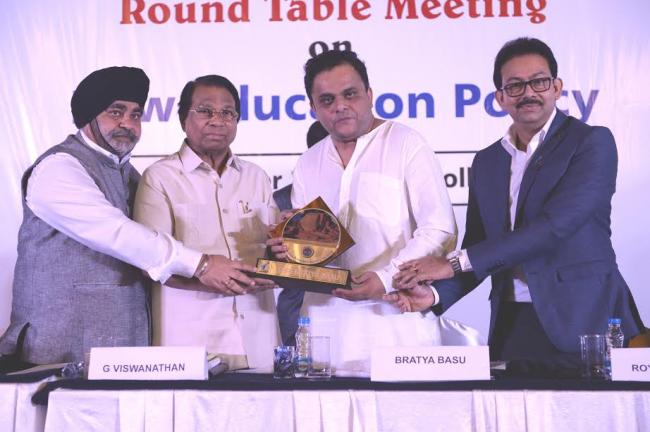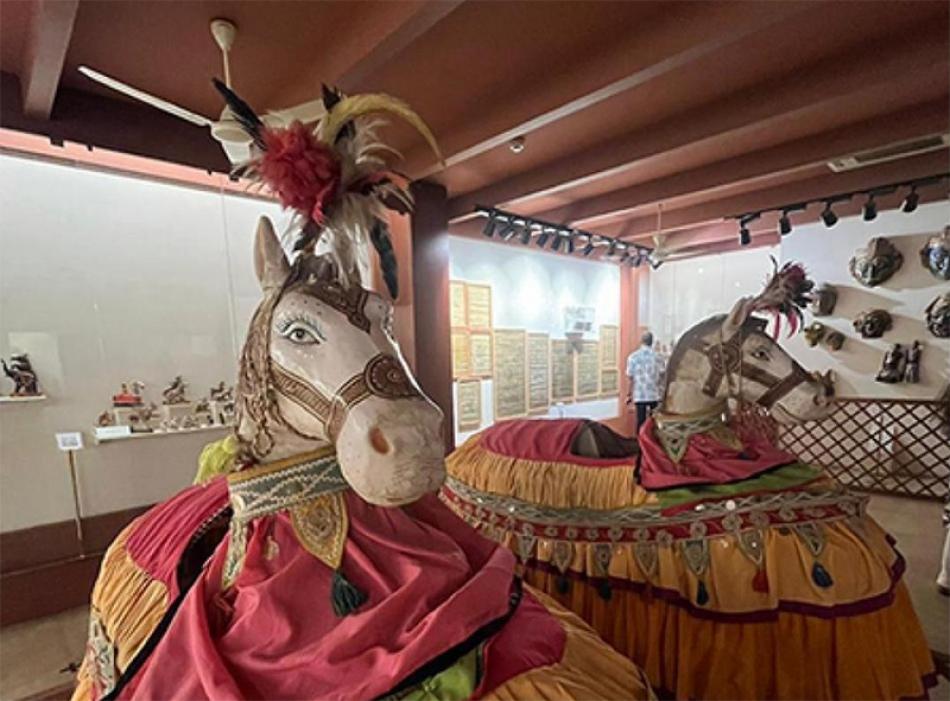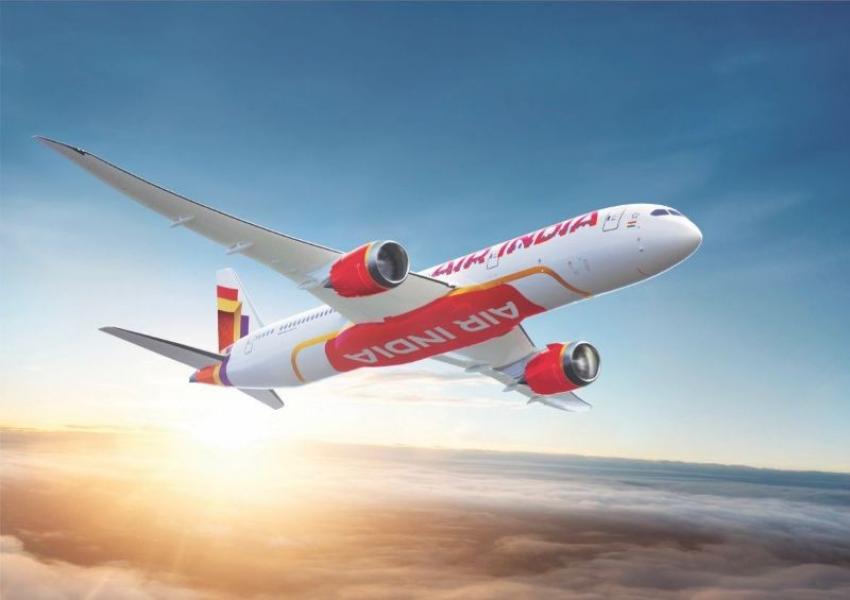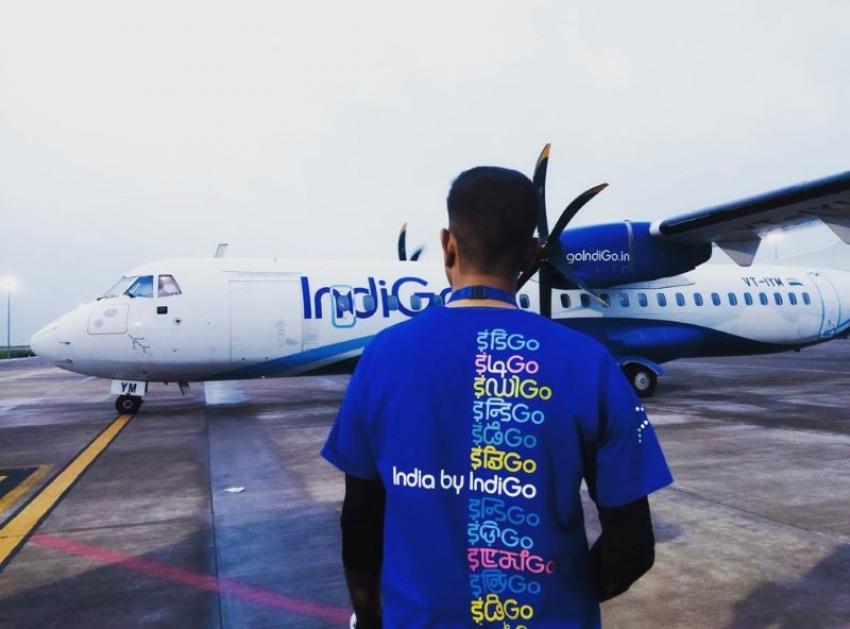30 Sep 2016, 07:31 am

Bratya Basu, Minister of Information Technology & Electronics, Guest of Honor Indranil Sen, Minister of State for Information & Cultural Affairs and Dr. Sajal Dasgupta Director Directorate of Technical Education Higher Education Department Govt. of West Bengal graced the occasion with their presence.
The purpose of the Round Table was to obtain the views of the stakeholders from Eastern Region about building consensus on various recommendations of the TSR Subramanian Committee on New Education Policy and also to arrive to make specific recommendations on the Discussions Paper issued by the MHRD, Govt. of India on New Education Policy.
.jpg) Many eminent Educationists, Policy Makers and Educational Entrepreneurs expressed their views on how to improve the quality of Indian Education, so that it can emerge at center stage in the emerging global knowledge society.
Many eminent Educationists, Policy Makers and Educational Entrepreneurs expressed their views on how to improve the quality of Indian Education, so that it can emerge at center stage in the emerging global knowledge society.
G Viswanathan, President, EPSI & Chancellor, VIT University, Vellore, Dr. H. Chaturvedi, Alternate President, EPSI & Director, BIMTECH, Gr. Noida, Taranjit Singh, Chairman, EPSI (ER), President, APAI, & Managing Director, JISGroup, Kolkata and Satyam Roychowdhury, Managing Director, Techno India Group initiated the discussion on Higher Education and School Education during the day long round-table, which was attended by more than 200 educationists and educational entrepreneurs.
Satyam Roychowdhury welcomed the Delegates, Speakers and Experts.
G Viswanathan in his inaugural address said that the private sector is a major player now both in School and Higher Education and providing critical support to the Indian Society and the economy for the preparation and grooming of the young generation, who will be taking big responsibilities in future.
He said that the Indian Economy was liberalized in 1990’s, which ultimately resulted into higher and sustained economic growth.
It is unfortunate, that the same liberal policy has not been replicated in the Indian Education Sector, even after twenty five years, which is struggling due to too much rigid control of regulatory bodies and resulting bureaucratic hassles and corruption, he said.
It has also increased the cost of education, because institutions are forced to pay hefty bribes for their approvals and permissions.
H Chaturvedi in his Keynote Address said that the Indian Higher Education is at the cross road. In coming decades, it can take an upturn and compete with developed nations if right kind of regulatory policies are adopted and funding support to the tune of 2% of GNP is provided by the Union Government. If current situation, i.e., continuous retreat of the state from its obligation to provide higher education for all, allowed to prevail under the New Education Policy, it can provide a disaster to the future of Indian economy as well as for the social stability.
.jpg) But during last decade, its school education and technical education have stagnated because of neglect by the policy makers and state education department(s). Several hundred engineering colleges have been either shut or become unviable due to short-sighted policy of the Government. There is a need for developing a pragmatic, vibrant and progressive education policy to take into consideration the present and future potential of the Indian economy.
But during last decade, its school education and technical education have stagnated because of neglect by the policy makers and state education department(s). Several hundred engineering colleges have been either shut or become unviable due to short-sighted policy of the Government. There is a need for developing a pragmatic, vibrant and progressive education policy to take into consideration the present and future potential of the Indian economy.
An EPSI delegation met Prakash Javadekar, Union Minister for HRD on Aug 30, 2016 at Delhi and submitted a memorandum pressing problems being faced by the private sector institutions across the country, because of the faulty policies of regulatory bodies, like UGC, AICTE, MCI, among others., and also mismanagement prevailing in various state governments in regard to the governance of education.
The Minister of HRD asked the EPSI delegation to develop a consensus on the recommendations of T.S.R. Subramanian Committee, which has drafted the New Education Policy, 2016. Then the Managing Committee of EPSI has decided to organize three round-table meetings at Coimbatore, Kolkata, Pune and finally a National conference at Delhi to finalise its recommendations to the MHRD on New Education Policy.
The eminent speakers at the round table took different aspects of the Discussion Paper of MHRD for presenting their views based on ground realities of education sector.
- Birbhum: Sitaramdas Omkarnath Chair at Biswa Bangla Biswavidyalay
- Rotary Club of Calcutta East Central celebrates centenary of iconic actor Santosh Dutta with statue unveiling
- Shiny things by Jinia: A luxury evolution by visionary entrepreneur, healer
- Mystique and Memories: Wiccan Brigade hosts its first Halloween Fest in Kolkata
- Rotary Club of Calcutta Samaritans hosts three-day youth leadership awards program for tribal students in Bakura
- Rotary Club, South Kolkata Vision inaugurate newly developed children's park in Sonarpur
- Akhil Bharat Jaiguru Sampradaya and Omkarnath Mission volunteers care for terminally ill patients at Mahamilan Math hospice
- Bengali couple promoting Indian music and culture among young Americans
- Indi Setu: Wildlife on the Brink: Can We Rewild a Warming World?
- Durga Puja sustainability: One of the oldest awards goes flex-free
Air Canada has introduced a new non-stop route connecting Toronto with Rio de Janeiro, with the first flight landing in the Brazilian city on Friday morning.
Air India, India’s leading global airline, and Maldivian, the national airline of the Maldives, have entered a bilateral interline partnership aimed at boosting connectivity between the two countries.
IndiGo, India’s largest airline, is grappling with one of its most severe operational crises in recent years, with widespread flight delays and cancellations disrupting travel across the country for a second consecutive day.





